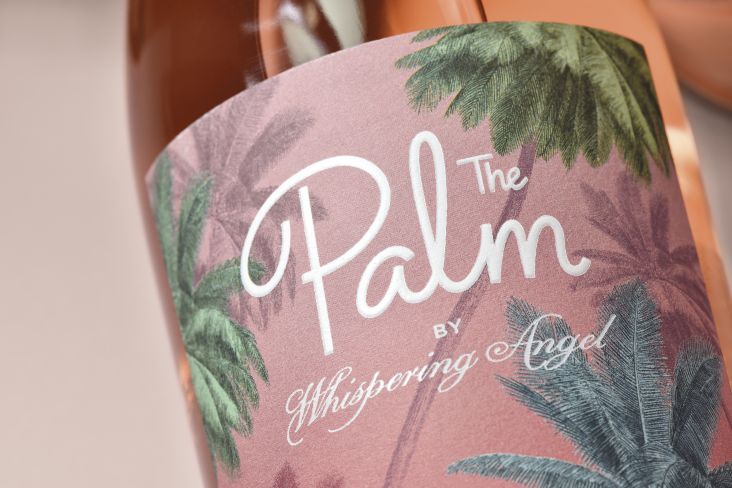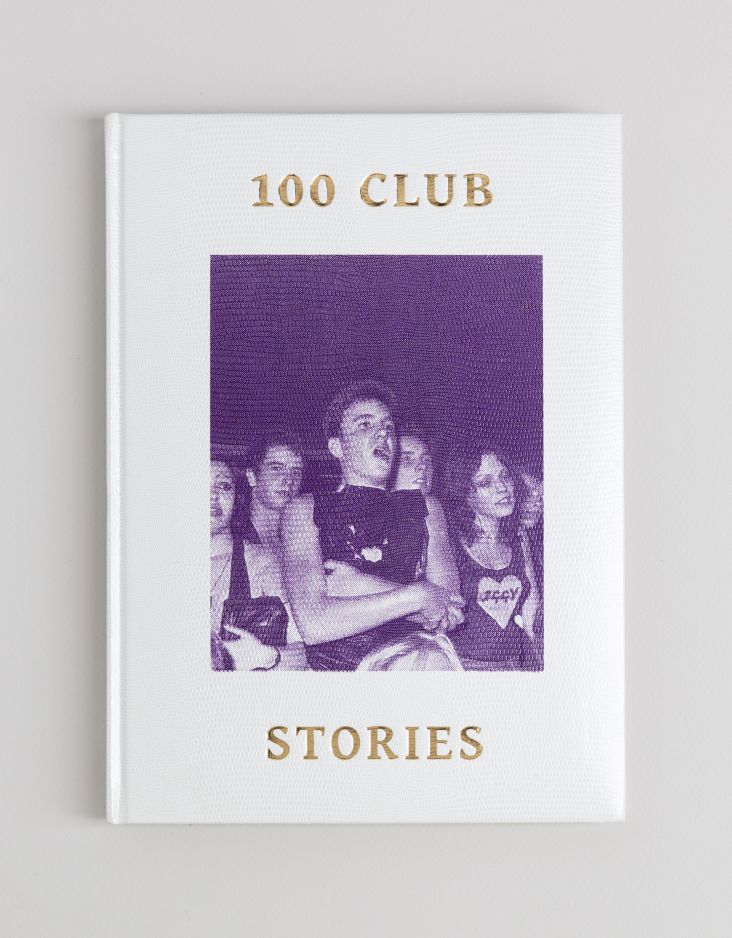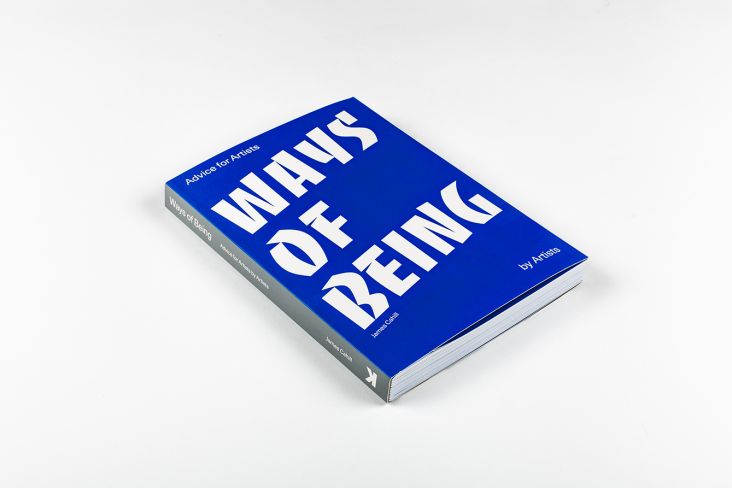Intelligent summer reading: 15 recommended books that will make you think
Over the next couple of months, you're going on holiday. That means complete switch-off for one or two weeks.

Image licensed via Adobe Stock
You don't want to even think about work. Not for a second. But, as a smart creative, you can't just turn away from your passions. You still want to be challenged. This is where Creative Boom's summer reading list will become your go-to guide.
We've picked out 15 of the best intelligent titles that will make you think whilst you're enjoying those precious weeks away. A chance to boost your general knowledge, be inspired and get to grips with those things that have been bugging you, so you come back fresh and ready for action.
1. Superintelligence: Paths, Dangers, Strategies by Nick Bostrom
We all know that the human brain has some capabilities that the brains of other animals lack. And it's to these distinctive capabilities that our species owes its dominant position. If machine brains one day come to surpass human brains in general intelligence, then this new superintelligence could become very powerful indeed.
But we have one advantage: we get to make the first move. Will it be possible to construct a seed AI or otherwise to engineer initial conditions so as to make an intelligence explosion survivable? How could one achieve a controlled detonation? This book attempts to answer these questions.
2. The Information by James Gleick
We live in the information age. But every era of history has had its own information revolution: the invention of writing, the composition of dictionaries, the creation of the charts that made navigation possible, the discovery of the electronic signal, the cracking of the genetic code.
In The Information, author James Gleick tells the story of how human beings use, transmit and keep what they know. From African talking drums to Wikipedia, from Morse code to the 'bit', it is a fascinating account of the modern age's defining idea and a brilliant exploration of how information has revolutionised our lives.
3. Antifragile: Things that Gain from Disorder by Nassim Nicholas Taleb
In his previous book, The Black Swan, Nassim Nicholas Taleb showed us that highly improbable and unpredictable events underlie almost everything about our world. In Antifragile he stands uncertainty on its head, making it desirable, even necessary.
"The antifragile is beyond the resilient or robust. The resilient resists shocks and stays the same; the antifragile gets better and better," reads the intro. "Just as human bones get stronger when subjected to stress and tension, many things in life benefit from stress, disorder, volatility, and turmoil. What Taleb has identified and calls antifragile are things that not only gain from chaos but need it in order to survive and flourish."
4. Complications: A Surgeon's Notes on an Imperfect Science by Atul Gawande
This book is a stunningly well-written account of the life of a surgeon: what it is like to cut into people's bodies and the terrifying – literally life and death – decisions that have to be made. There are accounts of operations that go wrong; of doctors who go to the bad; why autopsies are necessary; what it feels like to insert your knife into someone.
5. Economics: The User's Guide: A Pelican Introduction by Ha-Joon Chang
What is economics? What can, and can't, it explain about the world? Why does it matter? In Ha-Joon Chang's book, you will learn the fundamentals of economics. We also highly recommend his other best-selling title, 23 Things They Don't Tell You About Capitalism, a witty and timely debunking of some of the biggest myths surrounding the global economy.
6. McMafia: Seriously Organised Crime by Misha Glenny
Have you ever illegally downloaded a DVD? Taken drugs? Fallen for a phishing scam? Organised crime is part of our world, often without us even knowing. McMafia is a fascinating journey through the new world of international organised crime, from gunrunners in Ukraine to money launderers in Dubai, by way of drug syndicates in Canada and cybercriminals in Brazil.
7. The Shepherd's Life: A Tale of the Lake District by James Rebanks
Some people's lives are entirely their own creations. James Rebanks' isn't. The first son of a shepherd, who was the first son of a shepherd himself, he and his family have lived and worked in and around the Lake District for generations. Their way of life is ordered by the seasons and the work they demand, and it has been for hundreds of years.
A Viking would understand the work they do: sending the sheep to the fells in the summer and making the hay; the autumn fairs where the flocks are replenished; the gruelling toll of winter when the sheep must be kept alive, and the light-headedness that comes with spring, as the lambs are born and the sheep get ready to return to the fells.
8. Can You Solve My Problems?: A casebook of ingenious, perplexing and totally satisfying puzzles by Alex Bellos
Something a little different, courtesy of Alex Bellos, is this book containing 125 of the world’s best brainteasers from the last two millennia, taking us from ancient China to medieval Europe, Victorian England to modern-day Japan, with stories of espionage, mathematical breakthroughs and puzzling rivalries along the way.
Pit your wits against logic puzzles and kinship riddles, pangrams and river-crossing conundrums. Some solutions rely on a touch of cunning, others call for creativity, others need mercilessly logical thought. Some can only be solved by two per cent of the population. All are guaranteed to sharpen your mind.
9. Command and Control by Eric Schlosser
This superb book interweaves the minute-by-minute story of an accident at a missile silo in rural Arkansas, where a single crew struggled to prevent the explosion of the most powerful nuclear warhead ever built by the United States, with a historical narrative that spans more than fifty years.
It depicts the urgent effort to ensure that nuclear weapons can't be stolen, sabotaged, used without permission, or detonated inadvertently. Author Eric Schlosser also looks at the Cold War from a new perspective, offering history from the ground up, telling the stories of bomber pilots, missile commanders, maintenance crews, and other ordinary servicemen who risked their lives to avert a nuclear holocaust.
10. How Did We Get into This Mess?: Politics, Equality, Nature by George Monbiot
George Monbiot is one of the most vocal, and eloquent, critics of the current consensus. How Did We Get into this Mess?, based on his powerful journalism, assesses the state we are now in the devastation of the natural world, the crisis of inequality, the corporate takeover of nature, our obsessions with growth and profit and the decline of the political debate over what to do.
11. Factfulness: Ten Reasons We're Wrong About The World – And Why Things Are Better Than You Think by Hans Rosling
After our last two suggestions, you might want to cheer yourself up with our next recommendation. When asked simple questions about global trends – why the world's population is increasing; how many young women go to school; how many of us live in poverty – we systematically get the answers wrong.
In Factfulness, Professor of International Health and a man who can make data sing, Hans Rosling, together with his two long-time collaborators Anna and Ola, offers a radically new explanation of why this happens and reveals the ten instincts that distort our perspective.
12. Sapiens: A Brief History of Humankind by Yuval Noah Harari
Fire gave us power. Farming made us hungry for more. Money gave us purpose. Science made us deadly. This is a thrilling account of our extraordinary history – from insignificant apes to rulers of the world. Sapiens is a must-read. Written by Yuval Noah Harari, who has a PhD in History from the University of Oxford and now lectures at the Hebrew University of Jerusalem, specialising in World History.
13. Essentialism: The Disciplined Pursuit of Less by Greg McKeown
Have you ever found yourself struggling with information overload? Have you ever felt both overworked and underutilised? Do you ever feel busy but not productive? If you answered yes to any of these, the way out is to become an Essentialist.
In Essentialism, Greg McKeown, CEO of a Leadership and Strategy agency in Silicon Valley who has run courses at Apple, Google and Facebook, shows you how to achieve what he calls the disciplined pursuit of less.
14. How to Create a Mind by Ray Kurzweil
How does the brain recognise images? Could computers drive? How is it possible for man-made programs to beat the worlds best chess players? In this fascinating look into the human mind, Ray Kurzweil relates the advanced brain processes we take for granted in our everyday lives, our sense of self and intellect and explains how artificial intelligence, once only the province of science fiction, is rapidly catching up.
15. The Year Without Pants: WordPress.com and the Future of Work by Scott Berkun
Over 50 million websites, or twenty per cent of the entire web, use WordPress software. The force behind WordPress.com is a convention-defying company called Automattic, Inc., whose 120 employees work from anywhere in the world they wish, barely use email, and launch improvements to their products dozens of times a day. With a fraction of the resources of Google, Amazon, or Facebook, they have a similar impact on the future of the Internet. How is this possible? What's different about how they work, and what can other companies learn from their methods?
To find out, former Microsoft veteran Scott Berkun worked as a manager at WordPress.com, leading a team of young programmers developing new ideas. The Year Without Pants shares the secrets of WordPress.com's phenomenal success from the inside. Berkun's story reveals insights on creativity, productivity, and leadership from the kind of workplace that might be in everyone's future.




 by Tüpokompanii](https://www.creativeboom.com/upload/articles/58/58684538770fb5b428dc1882f7a732f153500153_732.jpg)

 using <a href="https://www.ohnotype.co/fonts/obviously" target="_blank">Obviously</a> by Oh No Type Co., Art Director, Brand & Creative—Spotify](https://www.creativeboom.com/upload/articles/6e/6ed31eddc26fa563f213fc76d6993dab9231ffe4_732.jpg)
















